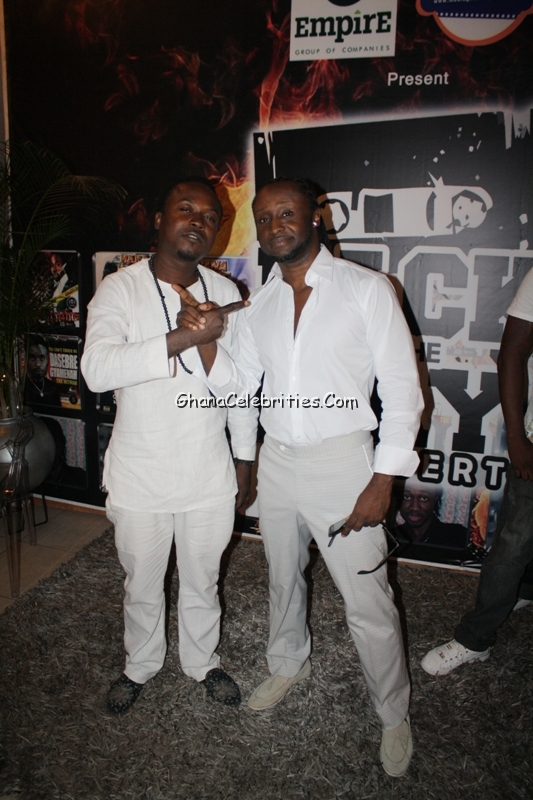
Even if you did not watch the recent IEA Presidential debate, I am sure you must have heard of Alhassan Ayariga’s famous phrase-exporting the brain drain…
Though the phrase ‘export brain drain’ makes no literate sense, we can deduct from Ayariga’s submission that he was talking about retaining and using the excellent brains we have in Ghana for the betterment of Ghana.
No one can dismiss the assertion that there are countless intelligent individuals in Ghana with many persistently displaying their academic credentials before and after their names anywhere they write them-even on cheques…
These smart individuals ranging from Professors to excellent writers have different sector interests and the Entertainment industry has its own fair share of these brains.
However, as usual of Ghanaians who find no substance, value, prestige and worth in our own invention, history and activities, we could not write even a lousy book on our biggest music creation –Hip Life.
I have read and listened to several comments from ‘patriotic’ Ghanaians and scholars who are sadden by the fact that, an indigenous Ghanaian could not document or write a book on the very music genre that we so much make noise about-HIP LIFE.
Instead, Professor Halifu Osumare, a Black American Associate Professor of African American Studies and the Director of the African American and African Studies at the University of California had to come and write a book on our own creation and music for us.
Many have expressed their dissatisfaction and cynicism about how true the book will be to what we know about Hip Life and what we desire to say about it since it was written by a foreigner.
As a Ghanaian Entertainment enthusiast and writer/blogger, I would like to mention that, if the indigenous Ghanaians could not tell their story in the way they wanted, then it is right that a foreigner does it for us.
And instead of bowing our heads in shame, why are we criticizing someone’s efforts (business or genuine) to document something we have been sitting on for donkey years?
I guess that is all we know how to do…Criticize those who create, simply because we do not have the oomph to create anything.
Do we even have value for anything Ghanaian? From experience, it only becomes valuable when a foreigner comes to pick it from our gutters, repackage it and sell it back to us.
If you care to know how little of documentary attention we give to the things we so much love and claim to cherish, just type ‘HIP LIFE’ into Google and check out the few sluggish words put together for the genre’s Wikipedia page (a free world wide encyclopedia that anyone can contribute to and edit). Then do the same for ‘HIP HOP’ and see how great the genre has been packaged on there by lovers of that genre.
What does this tell you? Ghanaians do not care about documenting our history (that is even if we have a history). We are so fused into the creation and history of others to the extent that we pay no attention to the things that define our existence.
Anytime you play or hear Hip life anywhere, just bow your head in shame for doing nothing for the improvement, documentation and exposure of the genre.
Our problem is deeply embedded in our entrenched notion of ‘someone will do it.’ We all think we are not the right persons to do something and that another Ghanaian (right person) will do it. And because we all have this mindset, nothing ever gets done until a foreigner like Professor Halifu Osumare comes out to tell our story for us.
If I had Professor Halifu Osumare’s email, I would have written to congratulate her for telling the Ghanaian story for us. We do not have any right to evaluate how she told the Hip Life story in her book and this is because, we lost that right the moment we couldn’t tell it our own way.
We pride ourselves with a lot as Ghanaians, but we have nothing documented to show ownership and the source of our pride…
You can buy a copy of the Hip Life Book From The Links Below on Amazon For $85
httpv://www.youtube.com/watch?v=dPUJ7X6USsA
The Hiplife in Ghana explores one international site, Ghana, West Africa, where hip-hop music and culture has morphed over two decades into a whole new form of world music called hiplife. It investigates hiplife music not merely as an imitation and adaptation of hip-hop, but as a revision of Ghana’s own century-old popular music called highlife.
Local hiplife artists have evolved a five-phased indigenization process that has facilitated a dynamic youth agency transforming Ghanaian society.
However these social shifts, facilitated by hiplife, have occurred within Ghana’s ‘corporate recolonization,’ serving as another example of neoliberalism’s global free market agenda that has become a new form of colonialism.
The text examines hiplife artists’ complicity with these socio-economic forces, while also creating counter-hegemonic projects that challenge this socio-economic context and push aesthetics limits at the same time.


5 Comments
Comments are closed.